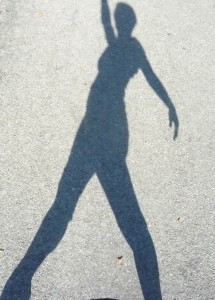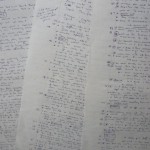My Opa (Dutch for grandfather) worked in an underground/resistance group in German-occupied Netherlands during World War II. I’ve known this all my life, but I am still learning new stories and seeing new evidence as my uncles dig through their papers and unearth some gems.
At this year’s family reunion, my Uncle Henk pulled out some war-era papers that left me awed. He laid out this dark history on a peeling picnic table on a warm and sunny day. I am now even more grateful that Opa undermined the occupying Nazis any way he could–and that he survived. Here is the story in brief, told by my uncle:
The leader was our family doctor, Oostenbrink. This work was already beginning when our family arrived in Velp in September of 1941 and Rev. Klaas Hart joined in soon after arriving. As a result at some time he also became a wanted person and had to find a safe place to live. In July of 1944 the Germans entered Oostenbrink’s and our home to search for evidence of illegal activity, which resulted in the dismantling of the resistance group and that, in turn, led to our flight by horse and wagon to the safer home of the Holtrusts in Ermelo in September of 1944. His work was utterly dangerous and a number of his group’s co-workers were arrested and either executed or sent to a concentration camp where they died.
And here is the story of a resistance worker, told in a series of permissions, notes, and newspapers.
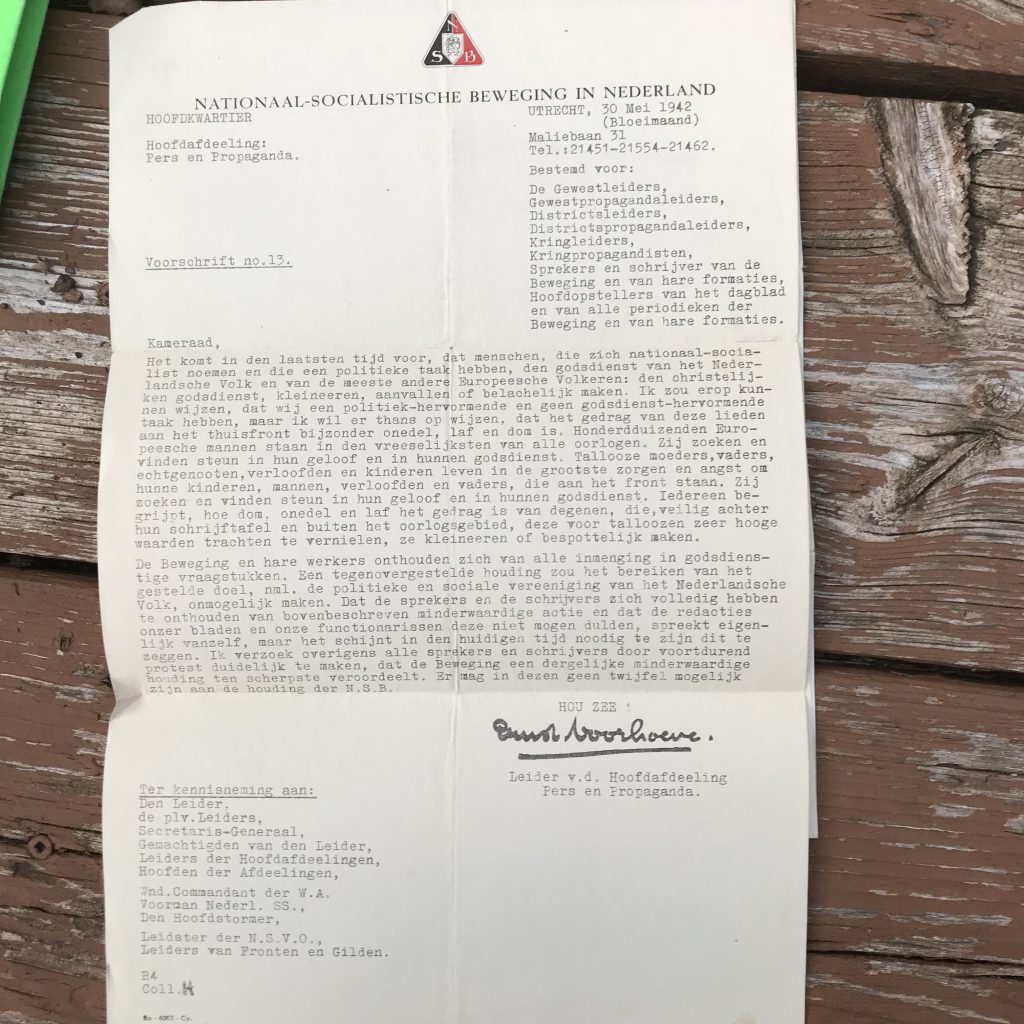
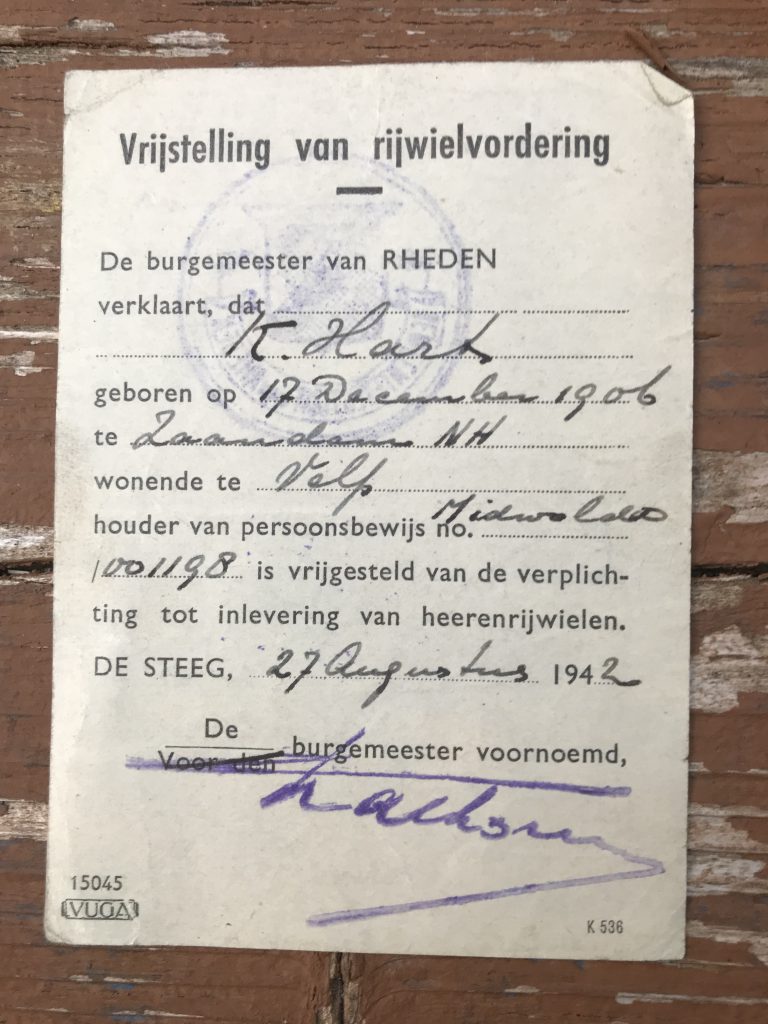
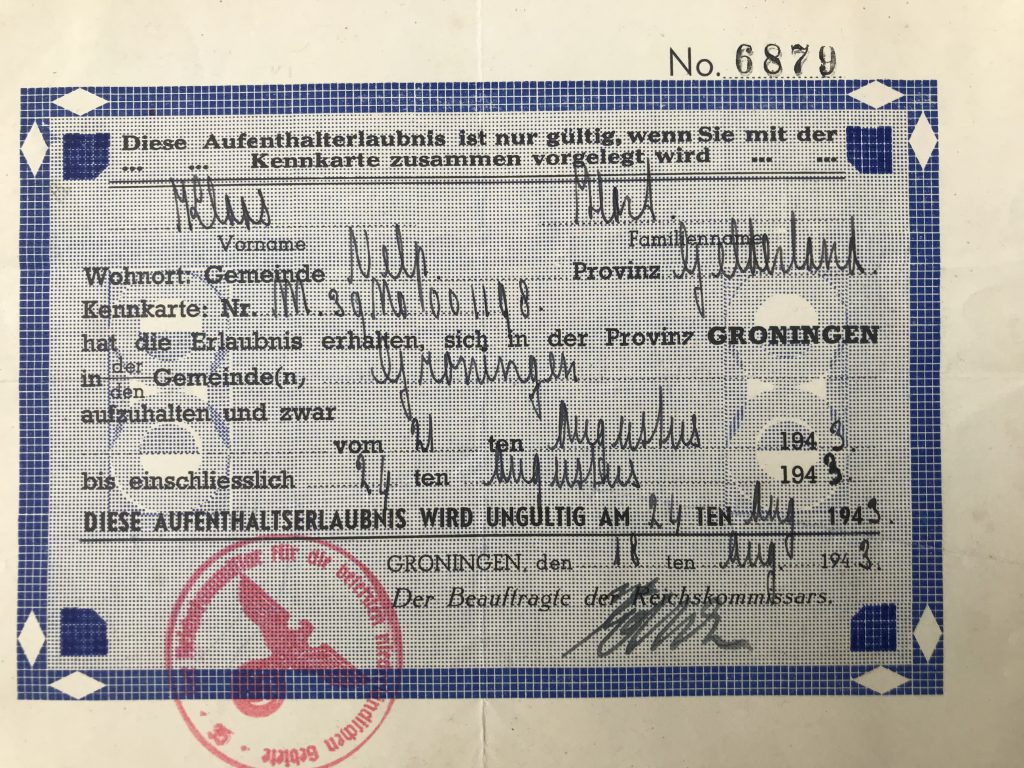
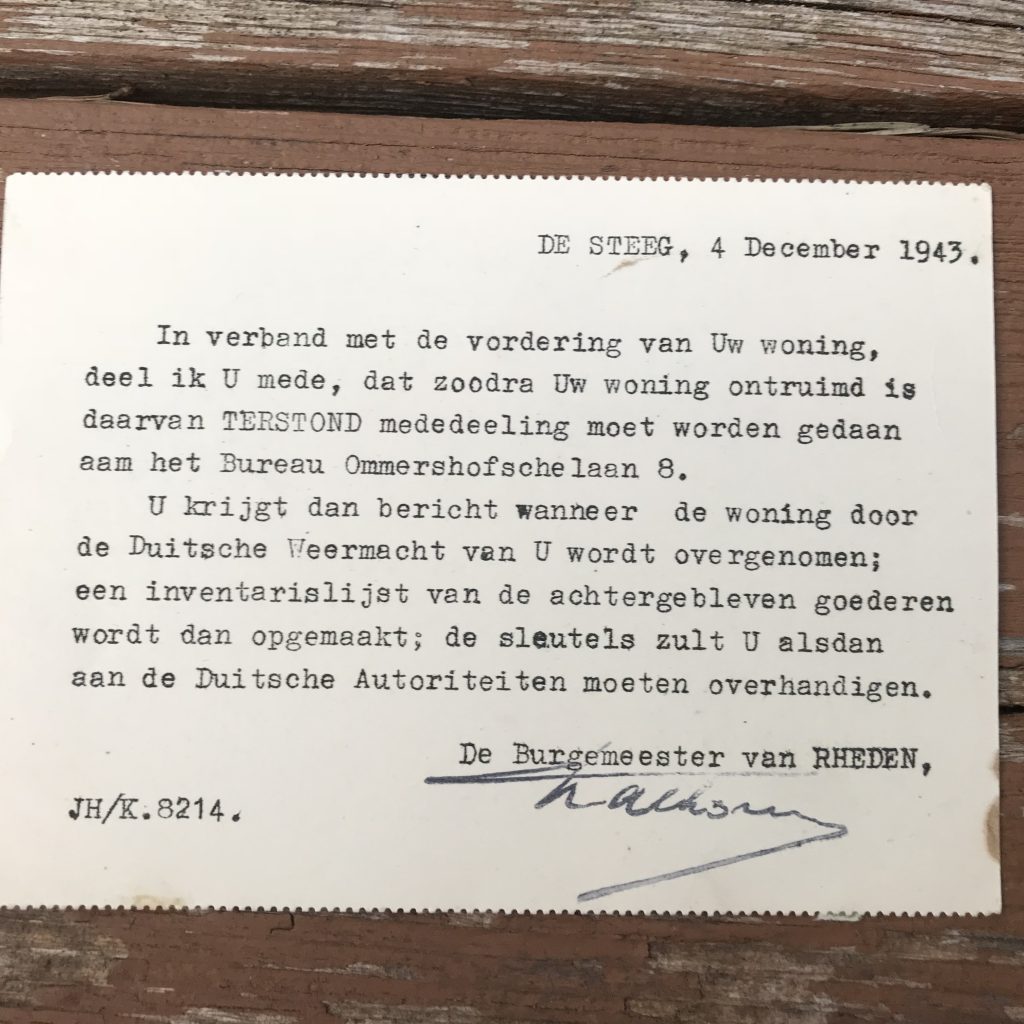
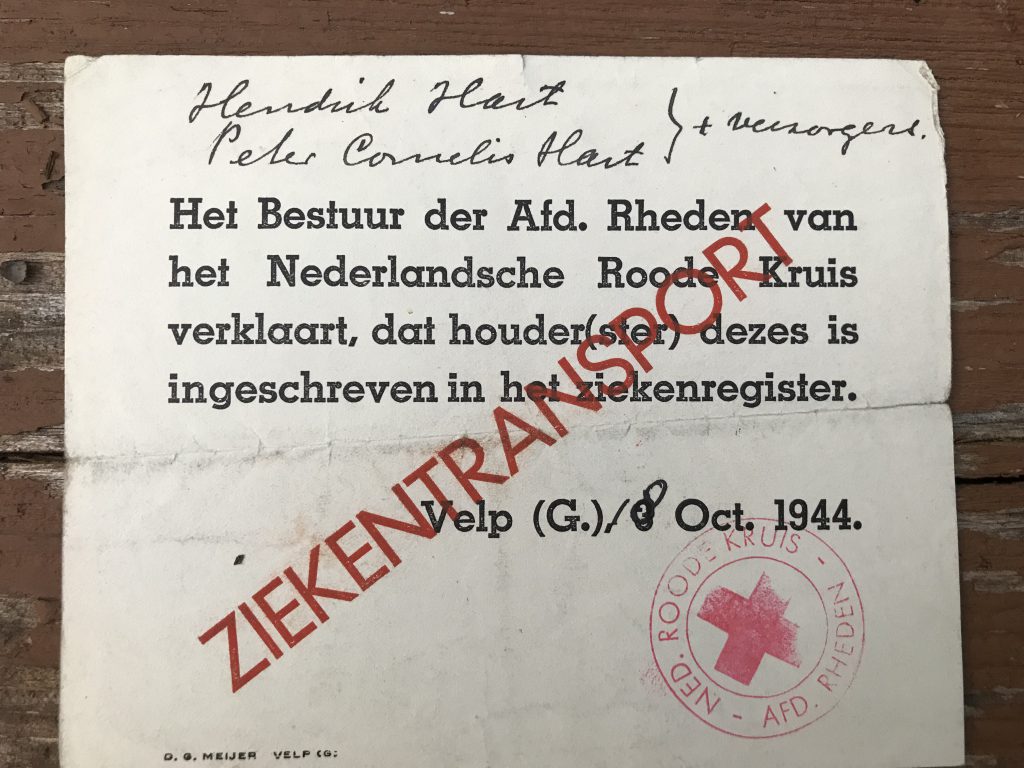
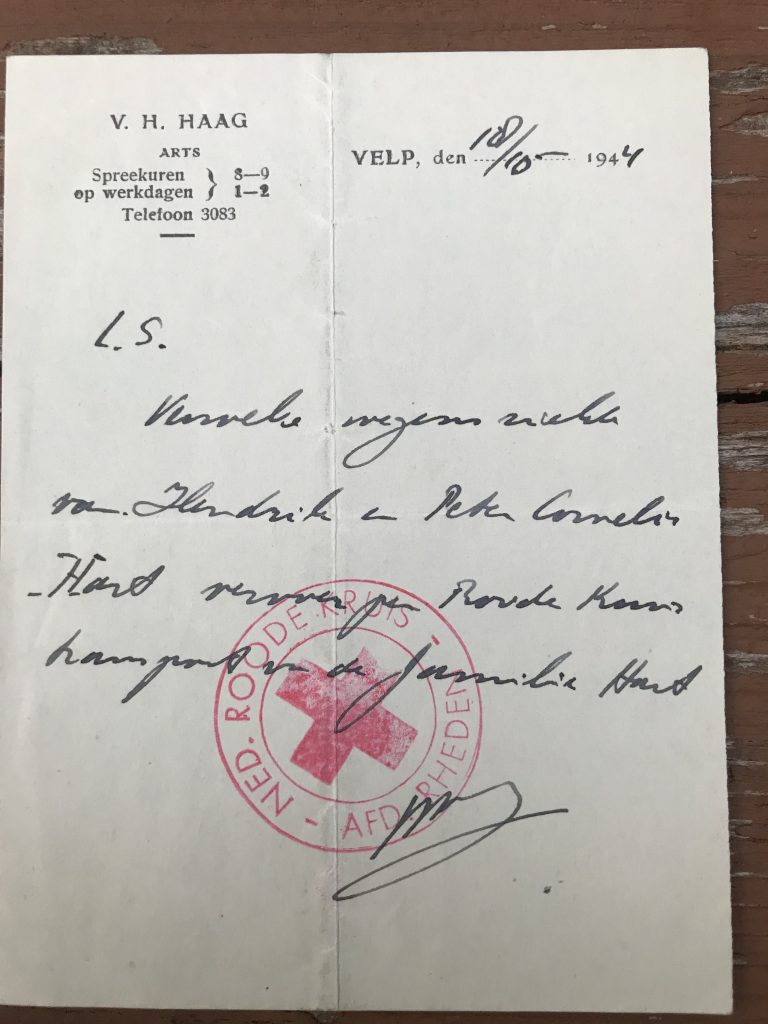
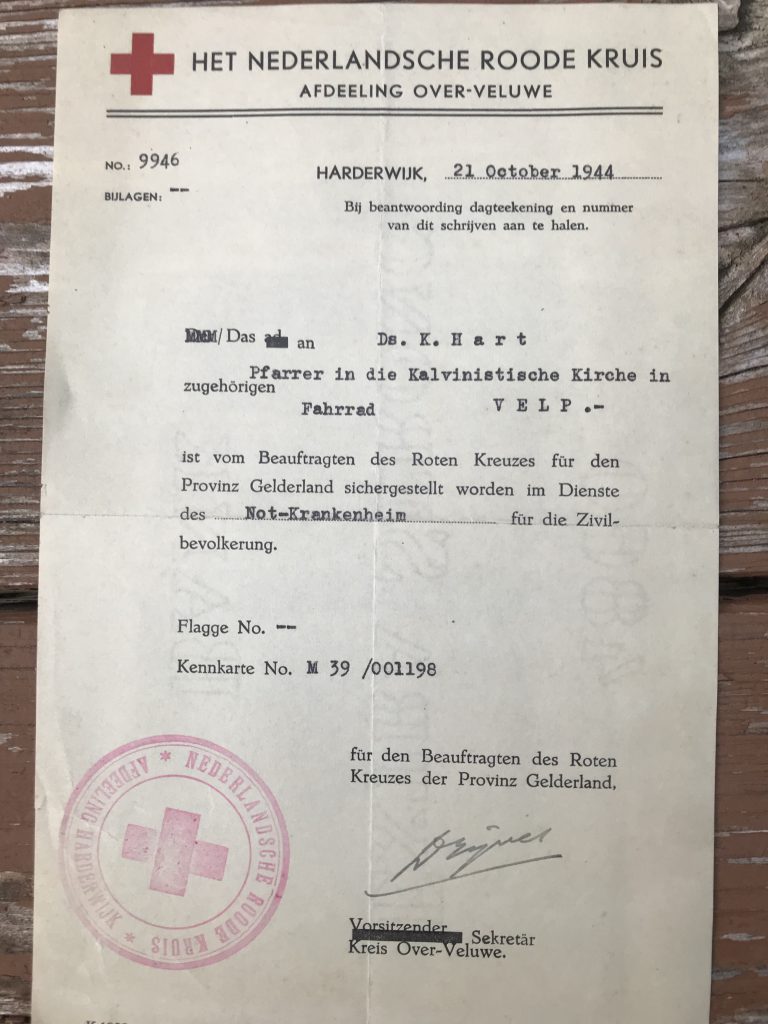
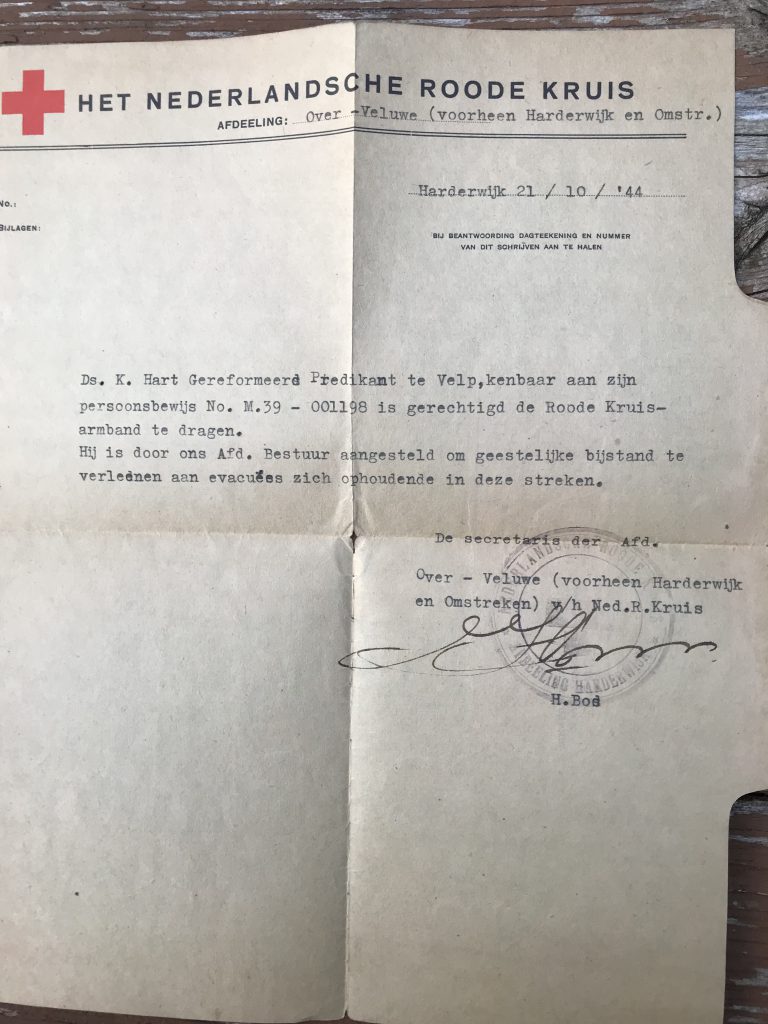
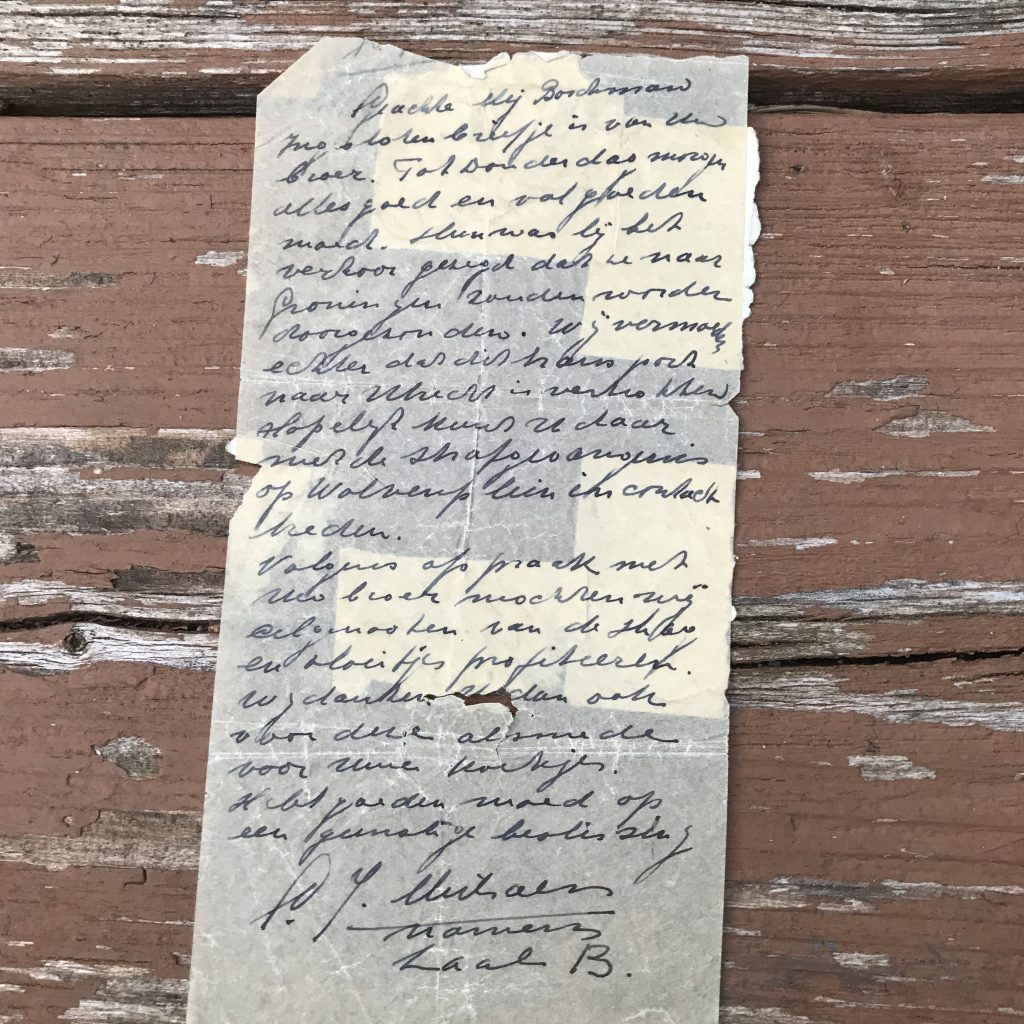
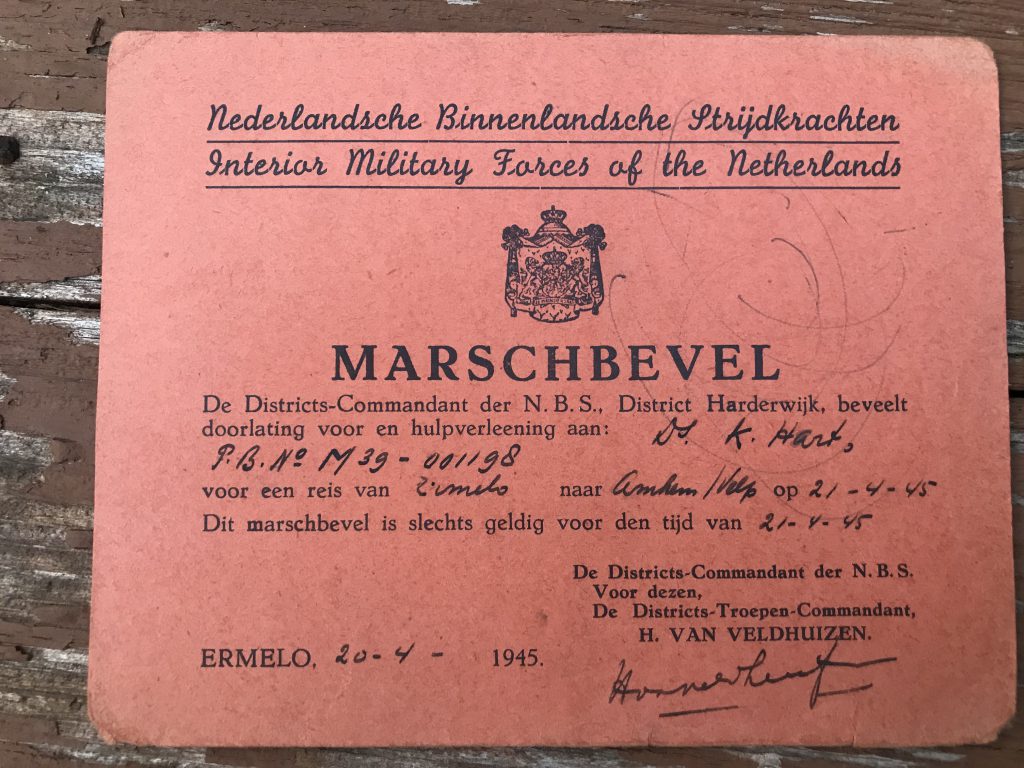
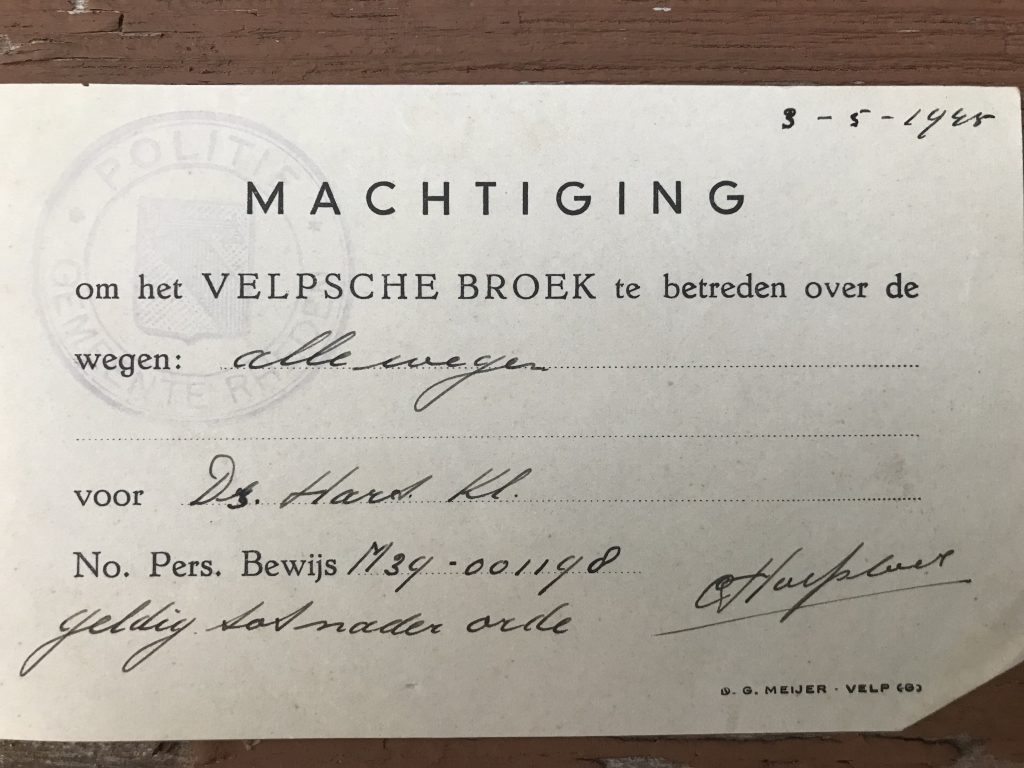
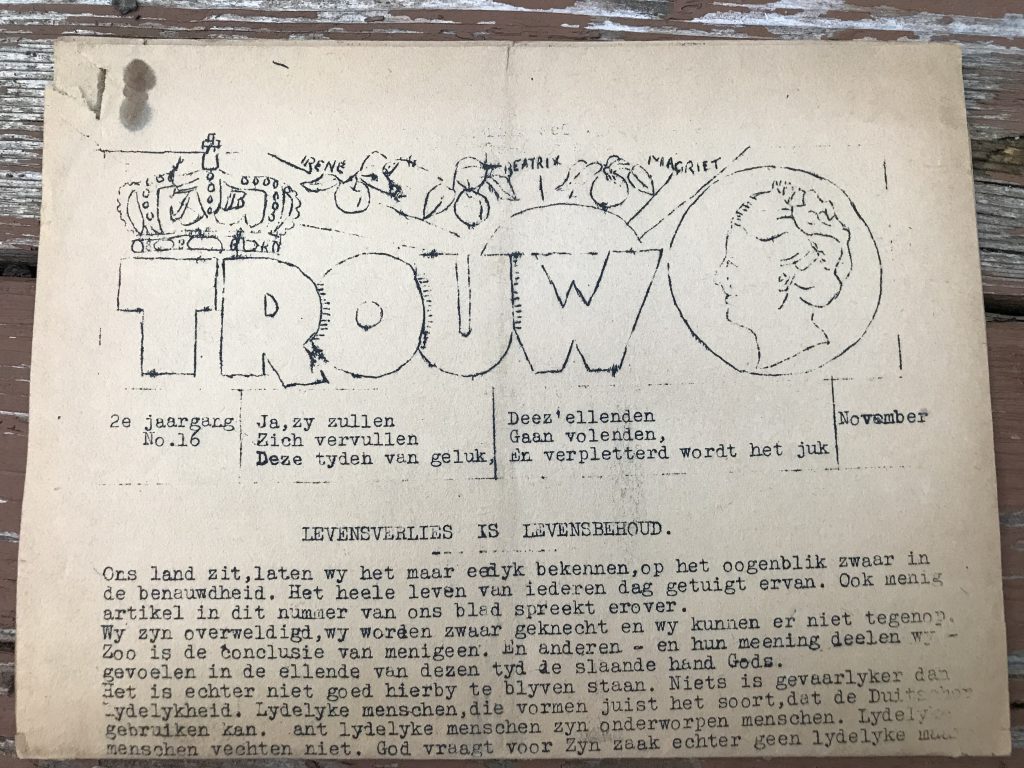
A Google translation: “Our country sits, let’s just confess it, at the moment heavy in the stuffy hero. The whole life of every day bears witness to it. Also many articles in this issue of our magazine talk about it. We are overwhelmed, we are heavily enslaved and we can not resist it. Such is the conclusion of many. And others think and share their opinions in the misery of this during the striking hand of God. However, it is not good to stand by. Nothing is more dangerous than Lydelykhied. Lydelyke people, they are just the kind that the [Germans] can use.” (In Africaans, Lyde means suffering and lyke means corpses, but beyond that, Google translate cannot go.)
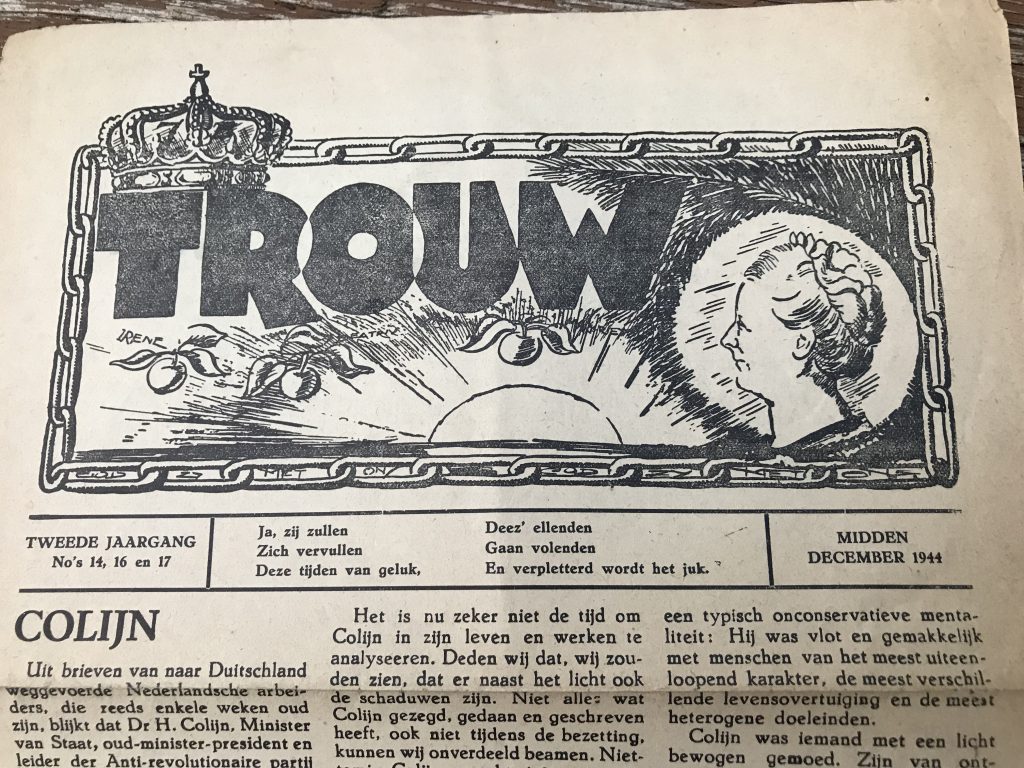
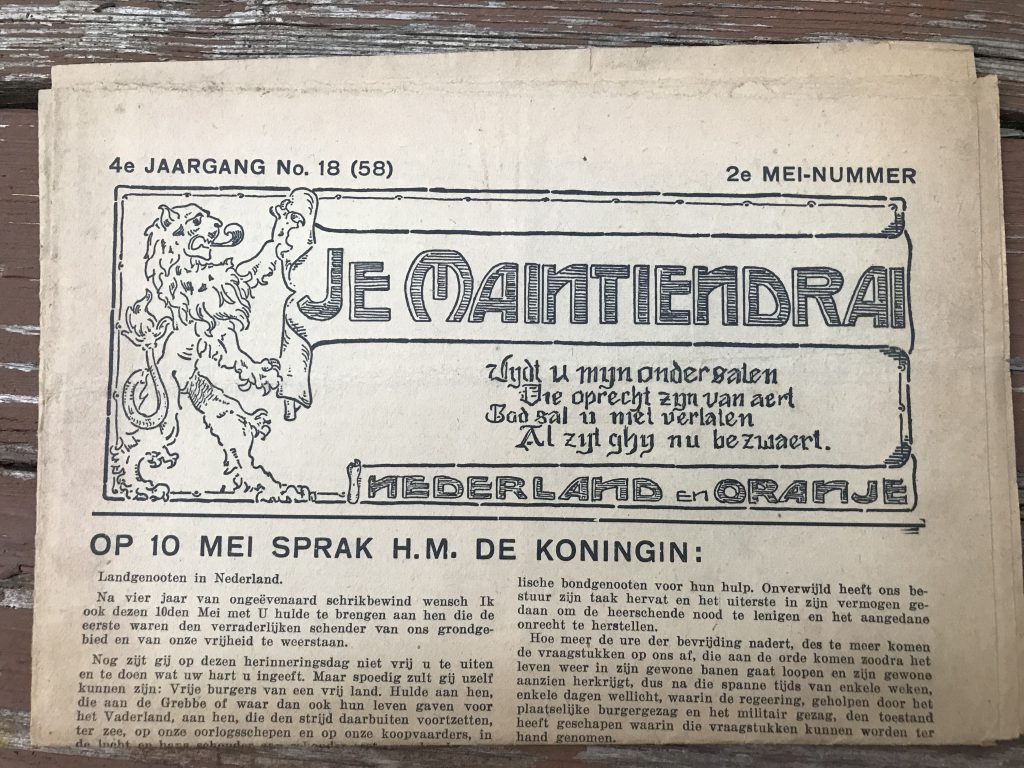
Seeing these tiny permission slips really brought home how restricted any movement was during occupation: being on the road, owning a bicycle, and trying to help people were all grounds for arrest. They needed permission for every little thing, and often double permission: once from a Dutch authority, once from the Germans. Their home could be taken. From other family stories, we know their food and livestock were confiscated by the German soldiers, and they were left with fish heads and oats to turn into a barely edible gruel that final winter of the war.
With all of these permissions, he would have travelled as himself: Rev. Klaas Hart. At least one of the permissions said it only counted if the person also had their ID on them. However, he also traveled under a different identification card, that my father has (my only image of it is on a CD and my computer has no CD drive). When they moved from Velp to a relative’s house in Ermelo, it meant a two-day walk for the family of 7, including a newborn. They had to beg a farmer for a place to sleep–everyone slept on fresh hay in the barn except for my Oma and the baby, who were welcomed into the house.
Yes, this was dangerous work. My Opa used his status as a minister to enable his wartime activities. He left the Netherlands for Canada after the war because there was no work for him, and no prospects for his six sons and one daughter.
I am the daughter of an immigrant, and granddaughter of a resistance worker. I descended from people who had to flee for their lives. The pull of the family legacy of working for justice and against injustice is strong and I answer it as best I can by writing letters and emails and calling my elected representatives, writing blog posts for myself and for the Grand Rapids Association of Pastors, and attending prayer vigils. It doesn’t feel like much when compared to what my family went through in the 1940s, but it’s something. #Resist
